
The National Audubon Society is an American non-profit environmental organization dedicated to conservation of birds and their habitats. Located in the United States and incorporated in 1905, Audubon is one of the oldest of such organizations in the world. There are completely independent Audubon Societies in the United States, which were founded several years earlier such as the Massachusetts Audubon Society and Connecticut Audubon Society.

Urban forestry is the care and management of single trees and tree populations in urban settings for the purpose of improving the urban environment. Urban forestry involves both planning and management, including the programming of care and maintenance operations of the urban forest. Urban forestry advocates the role of trees as a critical part of the urban infrastructure. Urban foresters plant and maintain trees, support appropriate tree and forest preservation, conduct research and promote the many benefits trees provide. Urban forestry is practiced by municipal and commercial arborists, municipal and utility foresters, environmental policymakers, city planners, consultants, educators, researchers and community activists.

Seward Park is a municipal park in Seattle, Washington, United States. Located in the city neighborhood of the same name, it covers 300 acres. The park occupies all of Bailey Peninsula, a forested peninsula that juts into Lake Washington. It contains one of the last surviving tracts of old-growth forest within the city of Seattle. The park is named after U.S. Secretary of State William Seward.
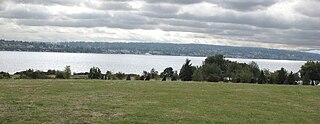
Magnuson Park is a park in the Sand Point neighborhood of Seattle, Washington, United States. At 350 acres (140 ha) it is the second-largest park in Seattle, after Discovery Park in Magnolia. Magnuson Park is located at the site of the former Naval Station Puget Sound, on the Sand Point peninsula with Pontiac and Wolf bays that juts into Lake Washington in northeast Seattle.

Forest Park is a public municipal park in the Tualatin Mountains west of downtown Portland, Oregon, United States. Stretching for more than 8 miles (13 km) on hillsides overlooking the Willamette River, it is one of the country's largest urban forest reserves. The park, a major component of a regional system of parks and trails, covers more than 5,100 acres (2,064 ha) of mostly second-growth forest with a few patches of old growth. About 70 miles (110 km) of recreational trails, including the Wildwood Trail segment of the city's 40-Mile Loop system, crisscross the park.
The Green Belt Movement (GBM) is an indigenous grassroots organization in Kenya that empowers women through the planting of trees. It is one of the most effective and well-known grassroots organisations addressing the problem of global deforestation. Professor Wangari Maathai established the organization in 1977 under the auspices of the National Council of Women of Kenya (NCWK). GBM's successes in forest conservation, education, and women's economic empowerment have gained the organisation worldwide acclaim. It is also noted for its advocacy of human rights, democratisation of access to public lands, and environmental justice issues such as the role of women's traditional ecological knowledge in addressing environmental degradation and desertification.
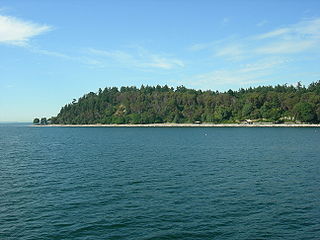
Lincoln Park is a 135 acres (0.55 km2) park in West Seattle alongside Puget Sound. The park's attractions include forest trails, a paved walkway along the beach, athletic fields, picnic shelters, and a heated saltwater swimming pool which is open during the summer. The park is adjacent to the Fauntleroy neighborhood.

Robert Michael Pyle is an American lepidopterist, writer, teacher, and founder of the Xerces Society for Invertebrate Conservation. Much of his life story is told in the 2020 feature film The Dark Divide, where Pyle is played by David Cross.
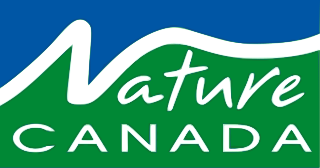
Nature Canada is a member-based environmental organization headquartered in Ottawa, Ontario. Its supporters include more than 100,000 individuals and over 800 affiliated organizations, including local and provincial naturalist clubs.
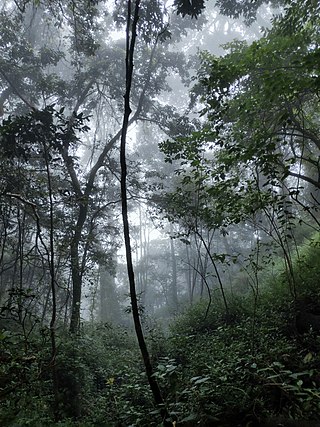
Sustainable forest management (SFM) is the management of forests according to the principles of sustainable development. Sustainable forest management has to keep the balance between three main pillars: ecological, economic and socio-cultural. Sustainable forestry can seem contradicting to some individuals as the act of logging trees is not sustainable. However, the goal of sustainable forestry is to allow for a balance to be found between ethical forestry and maintaining biodiversity through the means of maintaining natural patterns of disturbance and regeneration. The forestry industry mitigates climate change by boosting carbon storage in growing trees and soils and improving the sustainable supply of renewable raw materials via sustainable forest management. Successfully achieving sustainable forest management will provide integrated benefits to all, ranging from safeguarding local livelihoods to protecting biodiversity and ecosystems provided by forests, reducing rural poverty and mitigating some of the effects of climate change. Forest conservation is essential to stop climate change.
American Forests is a 501(c)(3) non-profit conservation organization, established in 1875, and dedicated to protecting and restoring healthy forest ecosystems. The current headquarters are in Washington, D.C.

Daylighting can be defined as "opening up buried watercourses and restoring them to more natural conditions". An alternative definition refers to "the practice of removing streams from buried conditions and exposing them to the Earth's surface in order to directly or indirectly enhance the ecological, economic and/or socio-cultural well-being of a region and its inhabitants". The term is used to refer to the restoration of an originally open-air watercourse, which had at some point been diverted below ground, back into an above-ground channel. Typically, the rationale behind returning the riparian environment of a stream, wash, or river to a more natural state is to reduce runoff, create habitat for species in need of it, or improve an area's aesthetics. In the UK, the practice is also known as deculverting.
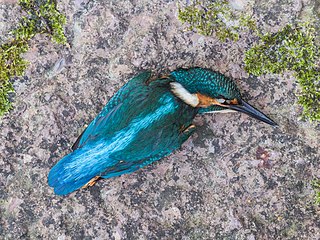
Bird–window collisions, also known as bird strikes after the aviation term or as window strikes, are a problem in both low- and high-density areas worldwide. Birds strike glass because reflective or transparent glass is often invisible to them. It is estimated that between 100 million and 1 billion birds are killed by collisions in the United States alone each year, with an estimated 16 to 42 million fatalities in Canada.
The environmental issues on Maury Island are linked to broader Puget Sound environmental issues, which include concerns regarding declining salmon and forage fish populations, degrading critical marine and shoreline habitats, and threatened species such as the Orca.
Scenic Hudson is a non-profit environmental organization in New York that protects land, creates, and enhances parks, and advocates for environmentally responsible policies and development practices.

Dorceta E. Taylor is an American environmental sociologist known for her work on both environmental justice and racism in the environmental movement. She is the senior associate dean of diversity, equity, and inclusion at Yale School of the Environment, as well as a professor of environmental justice. Prior to this, she was the director of diversity, equity, and inclusion at the University of Michigan's School of Environment and Sustainability (SEAS), where she also served as the James E. Crowfoot Collegiate Professor of Environmental Justice. Taylor's research has ranged over environmental history, environmental justice, environmental policy, leisure and recreation, gender and development, urban affairs, race relations, collective action and social movements, green jobs, diversity in the environmental field, food insecurity, and urban agriculture.
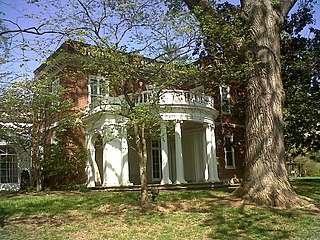
Nature Forward is an American non-profit environmental organization dedicated to conservation and education. The organization holds two properties in the Washington, D.C. metropolitan area as wildlife sanctuaries, one in Virginia along with its headquarters in Maryland. Until 1959, the organization was known as the Audubon Society of the District of Columbia. In October 2022. the membership voted to change the name of the organization from Audubon Naturalist Society of the Central Atlantic States, choosing the new name Nature Forward.

COASST is a citizen science project of the University of Washington, Seattle, WA, USA, with a goal of monitoring marine ecosystem health with the support of citizens within coastal communities. With the help of hundreds of volunteers, COASST assesses beach conditions and identifies and tracks any carcasses of dead seabirds found. Data on the carcass of a seabird contributes to creation of a baseline record for the death rates of various species of seabirds including which beaches birds are found at, and in what density. Any irregularities can be identified and evaluated so the cause of any increased mortality can be identified. COASST works with state, tribal and federal agencies, environmental organizations and community groups to help their goals of monitoring, and successfully establishing marine conservation solutions.
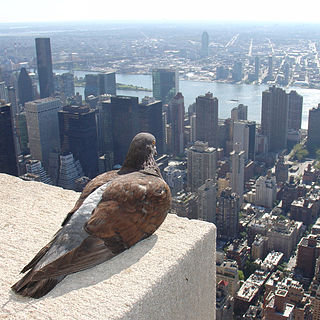
New York City is home to a large birding community and diverse range of bird species. Though it is the most populous and most densely populated city in the United States, NYC is home to a range of ecological habitats and is situated along the Atlantic Flyway, a major route for migrating birds. More than 400 species have been recorded in the city, and their concentration in the city's urban parklands, forests, marshes, and beaches has made birding a popular activity in the city, especially after the start of the COVID-19 pandemic.
The Iowa Audubon Society is a nonprofit organization based in Waterloo, Iowa. Its mission statement states that the Society's goal is to "identify, protect and restore Iowa’s bird habitats, to educate Iowa’s citizens toward a greater level of conservation awareness, and to promote enjoyment and greater pride in Iowa’s natural ecosystems, birds, [and] other wildlife."















